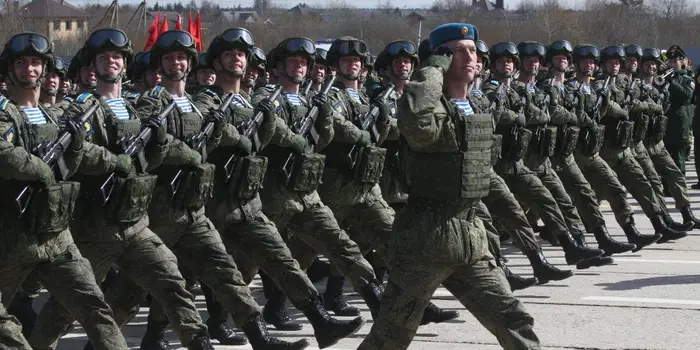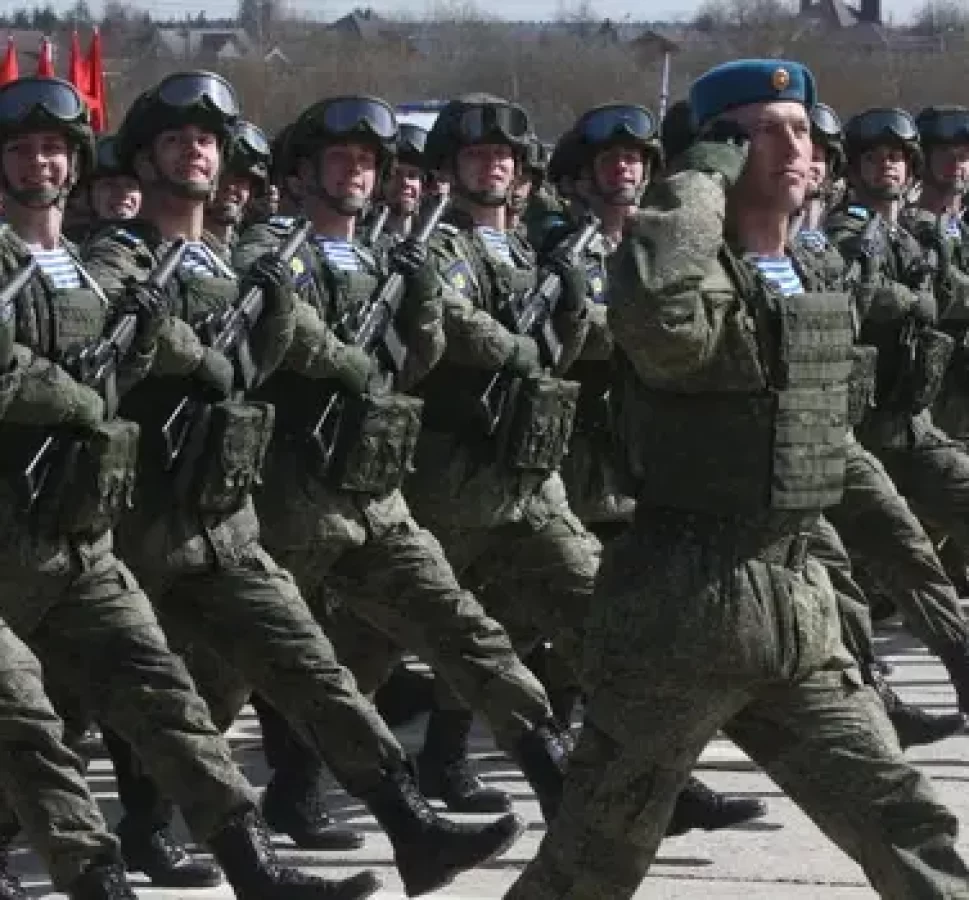
Moscow promised a quick victory in Ukraine. Nearly two years later, no end to the fighting is in sight.
The Russian public’s faith in their military has fallen, though it still remains high, according to a Gallup poll published on Tuesday.
The US pollsters said Russia’s failure to win the Ukraine war quickly – originally expected to last only weeks – had “slightly dented” Russians’ confidence in the country’s military.
Setbacks on the battlefield have “spurred discontent”, according to Gallup.
After nearly two years of fighting in Ukraine, casualties have mounted for both Russian and Ukrainian armies since the war began in February 2022.
Moscow announced a partial mobilisation of 300,000 men in September 2022, sparking protests across the country. It later put forward plans to increase the size of the military by more than 30% in 2023.
Three in four Russians (75%) interviewed by Gallup this summer said they were confident in the military, down from the 80% measured at the start of the invasion.
Not one single demographic group drove this fall, with men and women, young and old, rich and poor, all expressing less confidence in Russia’s armed forces.
“If people’s confidence in the military continues to fall in 2024, this may pose an even greater challenge to the Russian leadership in maintaining public support for the conflict it has yet to win,” Gallup wrote on its website.
Maintaining public morale is also an issue in Ukraine, as the war grinds on.
Why is confidence in the Russian military falling?
Gallup’s poll found that faith in the army was still “robust”, with three in every four adults confident in their military men. This is still “in line with the European media from 2022,” they detailed.
Their survey revealed, at the same time, Russians’ confidence in other institutions had increased, despite knocked confidence in the military.
Faith in the police, financial institutions and judicial system rose in 2023, with the US pollsters saying all three had reached “record highs” since they began recording data.
“During a period when confidence in many other state institutions rose significantly, the fact that the military bucks the trend is noteworthy,” Gallup wrote online.
They suggested that “the root of Russians’ waning faith in their military may lie in a growing disconnect between perceptions of Russia’s political and military leadership.”
Between 2006 and 2018, Gallup noted that confidence in the military followed a similar path – irrespective of whether people approved or disapproved of the country’s leaders.
However, since 2018, its polling shows that faith in the military has collapsed among those who disapprove of Russia’s leadership.
This trend has continued in 2023, with confidence in the military among those who disapprove of the country’s leaders dropping to its lowest point (40%) since 2006, Gallup detailed.
“The failed Wagner mutiny could well have played a part in this decline, as a significant public challenge to President Vladimir Putin’s authority that put both military competence and leadership approval into the spotlight,” they wrote online.
The Russian mercenary group marched on Moscow in a shock mutiny that was later called off, following a reported deal between Putin and its leader Yevgeny Prigozhin, who was later killed in a plane crash.
Polling in authoritarian regimes can be difficult. The Kremlin fiercely represses anti-war dissent and spends millions on pro-war propaganda, meaning they may not reflect the realities of the situation.
Some polls indicate that support for the military invasion of Ukraine is high. Others show a 50/50 split.






